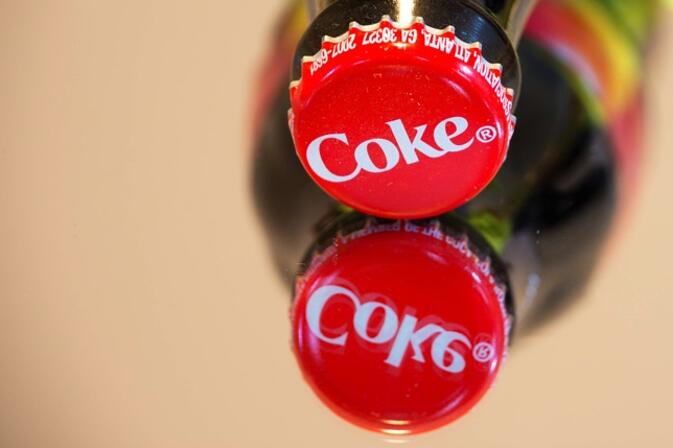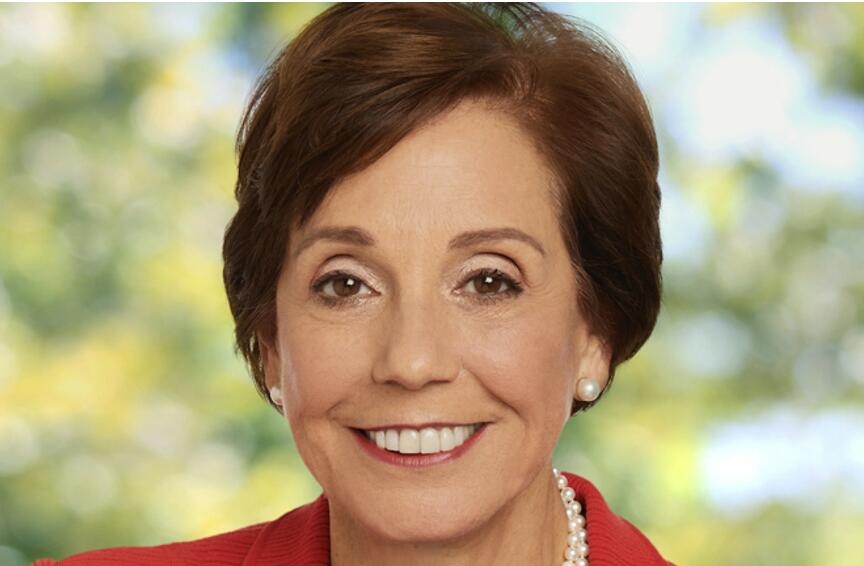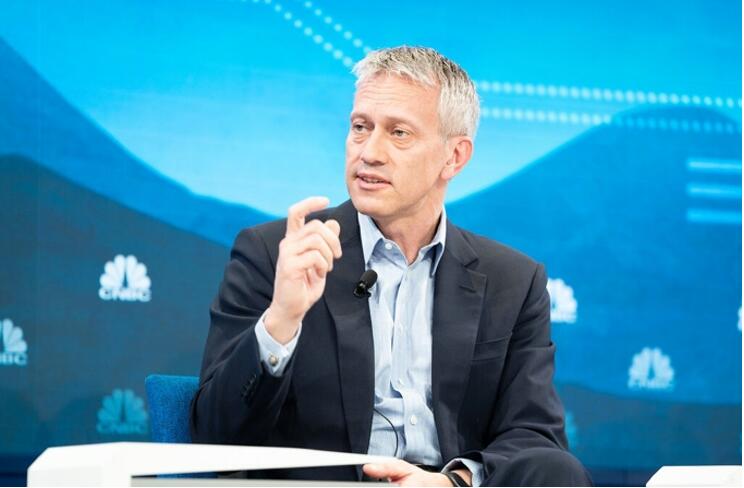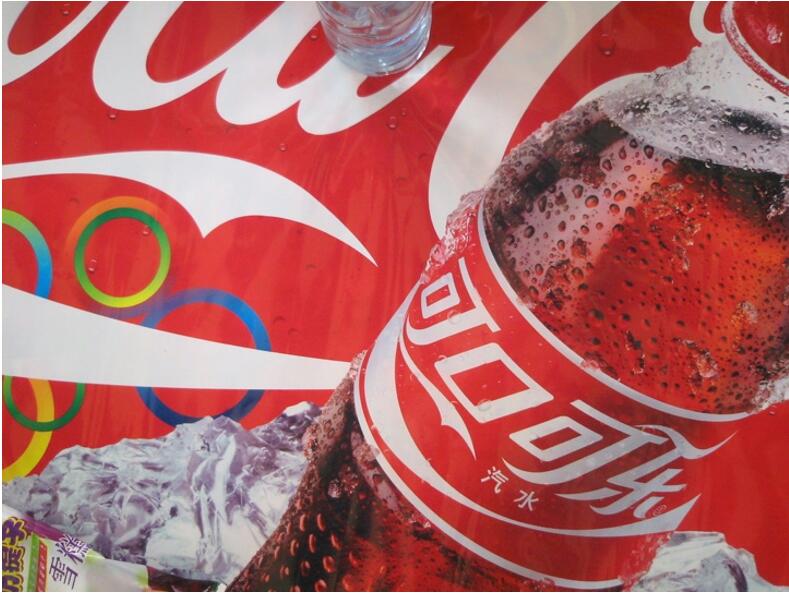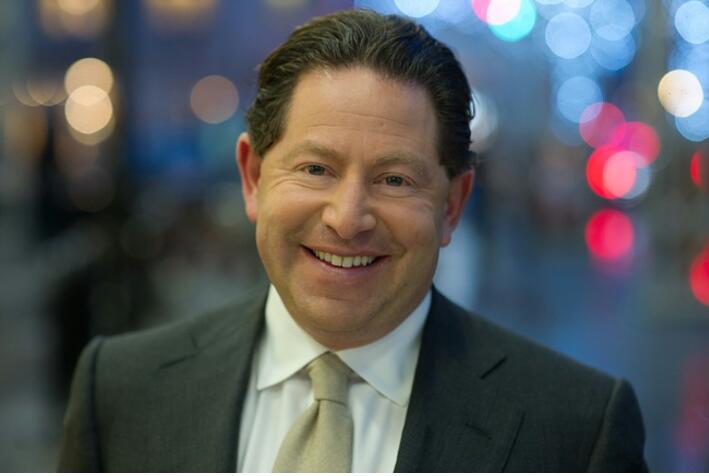United States Securities and Exchange Commission
Washington, D.C. 20549
NOTICE OF EXEMPT SOLICITATION
Pursuant to Rule 14a-103
Name of the Registrant: The Coca-Cola Company
Name of persons relying on exemption: National Legal and Policy Center
Address of persons relying on exemption: 107 Park Washington Court, Falls Church, VA 22046
Written materials are submitted pursuant to Rule 14a-6(g) (1) promulgated under the Securities Exchange Act of 1934. Submission is not required of this filer under the terms of the Rule but is made voluntarily in the interest of public disclosure and consideration of these important issues.

PROXY MEMORANDUM
TO: Shareholders of The Coca-Cola Company
RE: The case to vote FOR Shareholder Proposal No. 8 (“Requesting an Independent Board Chair Policy”) on the 2023 Proxy Ballot.
This is not a solicitation of authority to vote your proxy. Please DO NOT send us your proxy card; National Legal and Policy Center is not able to vote your proxies, nor does this communication contemplate such an event. NLPC urges shareholders to vote for Proposal No. 8 following the instructions provided on management's proxy mailing.
The following information should not be construed as investment advice.
Photo credits appear at the end of the report.
National Legal and Policy Center (“NLPC”) urges shareholders to vote “FOR” Shareholder Proposal No. 8, requesting an independent board chair policy, on the 2023 Proxy Ballot for The Coca-Cola Company (“Coca-Cola” or “Company”).
1
Summary
As has been long recognized under the American form of government, separation of powers and checks and balances are healthy practices. When it comes to leadership of public corporations, which are owned by a broad ideological and economic spectrum of shareholders, those practices also enhance accountability and self-examination. While not perfectly analogous to a representative republican form of democracy, the separation of responsibilities between a chief executive officer and a chair of the board enables each to focus on critical matters that fall under their respective purviews.
At the same time, one person occupying both the Chair and CEO roles infuses that leader with an inordinate amount of insufficiently-checked power. As we cite from the Council of Institutional Investors in our proposal’s supporting statement, “A CEO who also serves as chair can exert excessive influence on the board and its agenda, weakening the board’s oversight of management. Separating the chair and CEO positions reduces this conflict, and an independent chair provides the clearest separation of power between the CEO and the rest of the board.”
As the legendary late ITT Corporation CEO Harold Geneen wrote in his 1984 book Managing:1
If the board of directors is really there to represent the interests of the stockholders, what is the chief executive doing on the board? Doesn’t he have a conflict of interest? He’s the professional manager. He cannot represent the shareholders and impartially sit in judgment of himself.
And as two business law professors argued in the Harvard Business Review, “letting the CEO chair the board can compromise board discussion quality, weakening the corporation’s risk management ability.”2
The HBR co-authors, Joseph Mandato of Stanford University and William Devine of Menlo College, cite as examples “debacles” from recent years at Boeing, WeWork and Facebook (now Meta), in which they argue that a board of directors might be less willing to challenge a Chair and CEO, if both are the same person.
“A CEO feedback session whose import is underscored by having the CEO’s organizational equal—i.e., the board chair—conduct it is not possible, of course, when the board chair is the CEO,” the co-authors wrote. “This makes it harder to check a top exec steering the corporation astray.”
1 Geneen, Harold. Managing, Doubleday, January 1, 1984.
2 Mandato, Joseph and Devine, William. “Why the CEO Shouldn’t Also Be the Board Chair,” Harvard Business Review, March 4, 2020. See https://hbr.org/2020/03/why-the-ceo-shouldnt-also-be-the-board-chair.
2
|
| While Coca-Cola believes that combining the roles of CEO and Board Chair “provides certain synergies and efficiencies that enhance the functioning of the board,” we contend the opposite is the case.3 |
|
| |
|
| |
| Coca-Cola’s response to our proposal | |
|
| |
| Coca-Cola claims the CEO and Board Chair roles should continue to be consolidated | |
based on the following rationale: | ||
-the need for “flexibility” in the Board structure
-independence and objectivity within the existing Board structure
-to serve the interests of shareholders over time
The need for ‘flexibility’ in Board structure
In their proxy statement of opposition, the Company board of directors cite the need for “flexibility” in their ability to design a leadership structure, characterizing our proposal as “rigid.”
To that we plead: “Guilty as charged.” Flexibility should be viewed as a bug, not a feature.
Looking at the United States government example, is our constitutional form of government too rigid? Or should elected (or even appointed) leaders have elastic rules to play by – like Coca-Cola’s – so the preferences of a few powerful elites can be accommodated, dependent on shifting priorities like personal relationships, politics, peer acceptance, Twitter favorability, and other irrelevant subjectivisms beyond fiduciary duties? Despite the asserted benefit of “timely and unfiltered communication with the Board,” this leads to further concentration of power and influence within the entity.4
Speaking of that, Coca-Cola’s Corporate Governance policies say that combining the roles of Board Chair and CEO should be determined by the Board “from time to time, in its business judgment after considering relevant factors, including the specific needs of the business and what is in the best interests of the Company’s shareowners.”5
3 “The Coca-Cola Company 2023 proxy statements,” The Coca-Cola Company, April 25, 2023. See https://investors.coca-colacompany.com/filings-reports/proxy-statements/content/0001308179-23-000117/0001308179-23-000117.pdf.
4 “The Coca-Cola Company 2023 Proxy Statement,” The Coca Cola Company, April 25, 2023. See https://investors.coca-colacompany.com/filings-reports/proxy-statements/content/0001308179-23-000117/0001308179-23-000117.pdf.
5 “Corporate Governance Guidelines,” The Coca-Cola Company, April 27, 2017. See https://www.coca-colacompany.com/policies-and-practices/corporate-governance-guidelines.
3
Returning to our U.S. government example, would national oversight by our elected leaders be better served if, say, Congress decided it would be best if the roles of Speaker of the House and the President of the United States were held by the same person – but at another random given time, decided it was not the best practice? Such determinations are more subject to flawed, personal human opinions than to what’s best for the “needs of the Board and the Company.” Shareholders depend on consistency so they can know the rules that leadership plays by, rather than see them make the rules up as they go along.
Independence and objectivity within the existing Board structure
Coca-Cola claims “it is the Board’s independence, experience, and judgment in exercising its fiduciary duties upon which shareholders rely to protect their interests.”6 The Company contends that shareholder interests are protected because of the Board’s independence, while failing to actually create a Board that is independent. Coca-Cola’s 2023 Proxy states, “The full Board participates in the performance evaluation of both executive leadership and of itself.”7 We find this to be illogical and a testament to the unacceptable corporate governance practices of the company.
The Board also argues – like every other company with a similar governance structure – that separation of the Chair and CEO roles is not necessary, because the Company has a Lead Independent Director with “significant authority” that promotes a “robust leadership structure.”8 The “authority and responsibilities” of that role include:
- the ability to call meetings - planning, reviewing, and approving |
|
|
Board meeting agenda, though “any Director may raise a subject that is not on the agenda at any meeting”9 | ||
-chairing board meetings when the Chair/CEO is too busy managing the Company
-providing feedback and acting as a liaison to the Chair/CEO
-encouraging and “facilitating active participation of all Directors”10
-“be(ing) available for consultation and communication with shareowners”11
-“perform(ing) such other functions as the Board of other Directors may request”12
6 Ibid.
7 “The Coca-Cola Company 2023 Proxy Statement,” The Coca Cola Company, April 25, 2023. See https://investors.coca-colacompany.com/filings-reports/proxy-statements/content/0001308179-23-000117/0001308179-23-000117.pdf.
8 Ibid.
9 “Corporate Governance Guidelines,” The Coca-Cola Company, April 27, 2017. See https://www.coca-colacompany.com/policies-and-practices/corporate-governance-guidelines.
10 Ibid.
11 Ibid.
12 Ibid.
4
In reality, the Lead Independent Director responsibilities sound more like secretarial duties, rather than a “robust” or “significant” counter to the Chair/CEO.
Coca-Cola has stated that the Board of Directors “believes that ensuring strong, independent Board leadership is a critical requirement to build long-term shareowner value.”13 This obvious exception decreases the independence and objectivity of the entire board and should be remedied so all Board members are independent.
To serve the interests of shareholders over time
Coca-Cola claims that separating the positions of Board Chair and CEO would be “unnecessarily rigid and would not serve the interests of shareholders over time.”14 The Company claims that giving the Board ample flexibility will give members the ability to determine the “most appropriate Board leadership structure to best serve the needs of the business and our shareowners.”15 This, however, is in stark contradiction to the beliefs of financial experts and common industry practices.
The CFA Institute rejects Coca-Cola’s policies and states that “Good corporate governance not only protects the interests of investors and improves their trust in capital markets, but also acts as a key driver of investment performance.”16 The CFA Institute insists that “Board independence is a key cornerstone of corporate governance” and that “the same person should not perform the roles of Chair and CEO and that the chair should be an independent director.”17 Separating these roles is good corporate governance and is becoming best practice within the industry.
According to the 2022 Spencer Stuart Board Index survey (see chart next page), “Fifty-seven percent of S&P 500 boards split the chair and CEO roles, compared with 59 percent (in 2021).”18 That survey says that “a growing number of S&P 500 boards have separated the chair and CEO roles.”19 For reference, 51 percent of S&P 500 companies had separate CEOs and Board Chairs in 2017 versus 57 percent in 2022.20 The growing separation of the CEO and Chair positions within publicly traded companies signifies the changing sentiment towards Chair independence.
13 Ibid.
14 Ibid.
15 Ibid.
16 “CFA Institute pushes for more independence and diversity on company boards,” CFA Institute, September 14, 2021. See https://www.cfainstitute.org/en/about/press-releases/2021/independent-directors-in-Asia-Pacific.
17 Ibid.
18 “2022 U.S. Spencer Stuart Board Index,” Spencer Stuart, October 2022. See https://www.spencerstuart.com/-/media/2022/october/ssbi2022/2022_us_spencerstuart_board_index_final.pdf.
19 Ibid.
20 Ibid.
5

The dangers of too much concentrated power
When it comes to leadership structure, the concentration of power in a one-person Chair/CEO redounds little, if any, innate benefit to a Company and its shareholders, that a separated Chair and CEO structure could not also accomplish. On the other hand, Chair and CEO responsibilities are more likely to dilute the effectiveness and fulfillment of each role, if both are held by one person.
In the Boeing example cited by Mandato and Devine, the co-authors highlight former Chair/CEO Dennis Muilenburg’s three-year tenure, during which the company successfully lobbied to ease government oversight of new airplane designs.21 A subsequent series of events “is suspected to have led to two plane crashes and the tragic loss of 346 lives, the grounding of almost 500 planes worldwide, and company losses that will exceed $18 billion” (as of March 2020).
The two professors noted that during Muilenburg’s reign, he sought to remake the company as a “global industrial champion,” who debated openly with SpaceX founder/CEO Elon Musk over whose rocket would carry the first person to Mars. Meanwhile, he allegedly fostered an employee culture that disrespected and mocked regulators, among whom the twice-crashed 737 MAX was referred to as “a joke.”
“Boeing might have benefitted from a board chair initiating a closed executive session that considered Muilenburg’s fixation on global and interplanetary aspirations,” Mandato and Devine wrote. “Perhaps those aspirations could have been identified as what they turned out to be: signals that the corporation’s priorities had veered dangerously out of alignment.”
Even now Boeing is trying to recover from the disastrous 737 MAX “cascade of errors, shortcuts and management failures”22 that marked the Muilenburg era – but is still losing ground to rival Airbus.23
21 Ibid.
22 Cohn, Scott. “One year after the 737 Max’s return, Boeing is still trying to get back on course,” CNBC, Jan. 24, 2022. See https://www.cnbc.com/2022/01/24/the-737-max-may-be-back-but-boeing-is-still-trying-to-get-back-on-course.html.
23 Jolly, Jasper. “Boeing 737 Max disaster casts long shadow as planemaker tries to rebuild fortunes,” The Guardian, June 25, 2022. See https://www.theguardian.com/business/2022/jun/25/max-disaster-casts-long-shadow-as-boeing-tries-to-rebuild-its-fortunes.
6
|
| In the present case with Coca-Cola, the Board argues in its opposition to our proposal that the arrangement has allowed Chairman and CEO James Quincey to “best identify the most pressing business issues that require Board attention” and to “focus Directors’ attention on the most critical business matters.” 24 This introduces the risk that Mr. Quincey finds certain issues pressing that are not aligned with the issues that shareholders find important, as several examples in the next section illustrate. |
Questioning Mr. Quincey’s leadership as Chairman and CEO
For the duration of Mr. Quincey’s tenure as CEO and continuing after he added the Chairman role in 2019, he has not hesitated to associate the Company’s brand and reputation with divisive – and often destructive – positions on political issues. These include:
-In 2021 the Company, by now dubbed by some as “Woke-a-Cola,” faced boycotts and social media backlash when Mr. Quincey invoked the Company’s name to oppose the Georgia Election Integrity Act, which is now a law that ensures improved election accountability. Mr. Quincey lied about the bill’s specifics, stating, “The Coca-Cola Company does not support this legislation, as it makes it harder for people to vote, not easier.”25 Mr. Quincey further claimed that the law was “unacceptable” and “a step backwards,” while the President of the United States likened the law to “Jim Crow in the 21st century.”26 The result of the Election Integrity Act was seen in the 2022 elections, with it being the “most successful election in history,” as early voting tripled relative to 2018, and it became “easier for citizens to vote and harder to cheat.”27 28 Coca-Cola’s stated opposition to the new law damaged the company’s integrity and image, thanks to Mr. Quincey’s unchecked judgment.
-Mr. Quincey saw fit to include Coca-Cola in a multi-company effort as co-signer of a letter that opposed plans by the Department of Health and Human Services in 2018 to
24 “The Coca-Cola Company 2023 proxy statements,” The Coca-Cola Company, April 25, 2023. See https://investors.coca-colacompany.com/filings-reports/proxy-statements/content/0001308179-23-000117/0001308179-23-000117.pdf.
25 “Shareholder proposal highlights Coca-Cola CEO’s hypocrisy,” National Legal and Policy Center, April 26, 2022. See https://www.nlpc.org/corporate-integrity-project/shareholder-proposal-highlights-coca-cola-ceos-hypocrisy/.
26 Mittelstadt, Natalia. “Iconic brands that slammed Georgia election law have eff on face amid state’s record voter turnout,” Just the News, November 16, 2022. See https://justthenews.com/politics-policy/elections/corporations-bet-against-georgia-election-integrity-law-and-lost-amid.
27 Brown, Spencer. “Coca-Cola gets trolled in Georgia for Lying about election integrity law,” Townhall, December 6, 2022. See https://townhall.com/tipsheet/spencerbrown/2022/12/05/coca-cola-gets-trolled-in-georgia-for-lying-about-election-integrity-law-n2616773.
28 “Myth v. fact: Georgia’s Election Integrity Act,” Senate Republican Policy Committee, June 23, 2022. See https://www.rpc.senate.gov/policy-papers/myth-v-fact-georgias-election-integrity-act.
7
restore definitions of “sex” to remove the term “identity,” and limit it according to the biological traits an individual is born with, for the purposes of Title IX enforcement of gender discrimination in civil rights law.29 He also signed the Company’s name to a 2019 letter in support of the so-called “Equality Act,” which would have added “sexual orientation” and “gender identity” to “race, color, religion, sex, or national origin” discrimination protections in the Civil Rights Act of 1964.30 In practice such changes would have squashed almost all other rights and freedoms Americans possess –including speech, association, privacy, and property rights.
-Coca-Cola held mandatory “anti-racist” training in 2021 that instructed employees to try to “be less white.”31 The training claimed that, in order to be “less white,” one must “be less oppressive, be less arrogant, be less certain, be less defensive, be less ignorant, be more humble, listen, believe, break with apathy, (and) break with white solidarity.”32 This training, clearly “blatant racial discrimination,”33 was also allowed under leadership of the virtue-signaling Mr. Quincey.
-In addition to providing $2.5 million in grants for left-leaning organizations such as the Equal Justice Initiative, the NAACP Legal Defense Fund, and the National Center for Civil and Human Rights, Coca-Cola supported and invested in the Black Lives Matter movement,34 donating $500,000 to the Black Lives Matter Global Network Foundation (“BLMGNF”).35 The Black Lives Matter movement has “intimidated the leaders of some of America’s largest corporations into paying fealty to its harmful and deceptive narrative.”36 The movement and its involvement societal unrest and support of defunding the police “directly contributed to the spike (in murders of African Americans during 2020)” and led to an “uprising that destroyed many of our cities’ downtowns, including Atlanta’s.”37 38 Inside the BLMGNF, co-founder Patrisse Cullors has described herself as
29 Chesser, Paul. “Corporations Mobilize to Attack Gender Normality,” National Legal and Policy Center, Nov. 8, 2018. See https://archive.nlpc.org/2018/11/08/corporations-mobilize-to-attack-gender-normality/.
30 Chesser, Paul. “Corporate America Gets Behind Deceptively Named ‘Equality Act’,” National Legal and Policy Center, June 4, 2019. See https://archive.nlpc.org/2019/06/04/corporate-america-gets-behind-deceptively-named-equality-act/.
31 Abbott, Joel. “Coca-Cola holds ‘anti-racist’ training that instructs employees to ‘be less white,’ according to whistleblower with receipts,” Not the Bee, February 20, 2021. See https://notthebee.com/article/coca-cola-holds-anti-racist-training-that-tells-employees-be-less-white.
32 Lee, Michael. “Coca-Cola has employees take training on how to ‘be less white’ to combat racism,” Washington Examiner, February 20, 2021. See https://www.washingtonexaminer.com/news/coca-cola-training-be-less-white.
33 Ibid.
34 Quincey, James. “Where we stand on social justice,” The Coca-Cola Company, June 4, 2020. See https://www.coca-colacompany.com/news/where-we-stand-on-social-justice.
35 “Taking a stand,” The Coca-Cola Company, accessed March 25, 2023. See https://www.coca-colacompany.com/social-impact/diversity-and-inclusion/racial-equity/external-action/taking-a-stand.
36 Colton, Emma. “Companies that loudly supported BLM fall silent when confronted with skyrocketing black murders,” Fox News, April 26, 2022. See https://www.foxnews.com/us/companies-that-loudly-supported-blm-fall-silent-when-confronted-with-skyrocketing-black-murders.
37 Ibid.
38 “Shareholder proposal highlights Coca-Cola CEO’s hypocrisy,” National Legal and Policy Center, April 26, 2022. See https://www.nlpc.org/corporate-integrity-project/shareholder-proposal-highlights-coca-cola-ceos-hypocrisy/.
8
a “trained Marxist,”39 but also has been credibly accused of financial misappropriation40 with the organization’s funds by spending millions of dollars on private mansions in wealthy neighborhoods and “employing” family members and friends.
- | Coca-Cola “strictly prohibits any type of forced labor in our supply,” though the Company lobbied against a law that would restrict the importation of goods produced with forced labor in China’s Xinjiang region.41 The law, the Uyghur Forced Labor Prevention Act, had bipartisan support and sought to “prohibit broad categories of certain goods made by persecuted Muslim minorities in an effort to crack down on human rights abuses,” which are prevalent in the Xinjiang region of China.42 Despite Coca-Cola’s claims |
|
| that audits performed indicate no forced labor within its Xinjiang supply chain, the Company spent nearly $5 million on in-house lobbying during the first three quarters of 2020 to lobby against this and other bills.43 Coca-Cola also refused to condemn the Chinese government’s human rights violations and continued to be a primary sponsor of China’s “genocide Olympics” in 2022.44 | |
“[Coca-Cola] inserted themselves into Black Lives Matter. They inserted themselves into the Election Integrity Act in the state of Georgia. And they made such a big deal about both of them being wrong – and they have the right to do that,” said Rep. Buddy Carter of Georgia last year.45 “But if you’re gonna do that, I think it’s hypocritical to be a major sponsor of the Olympics in a country where you know this is going on, and you’re gonna turn a blind eye to it.”
39 Colton, Emma. “Companies that loudly supported BLM fall silent when confronted with skyrocketing black murders,” Fox News, April 26, 2022. See https://www.foxnews.com/us/companies-that-loudly-supported-blm-fall-silent-when-confronted-with-skyrocketing-black-murders.
40 Bellamy-Walker, Tat. “Black Lives Matter activists accuse executive of stealing $10 million in donor funds,” NBC News, September 7, 2022. See https://www.nbcnews.com/news/nbcblk/black-lives-matter-activists-accuse-executive-stealing-10-million-dono-rcna46481.
41 Swanson, Ana. “Nike and Coca-Cola lobby against Xinjiang forced labor bill,” The New York Times, January 20, 2021. See https://www.nytimes.com/2020/11/29/business/economy/nike-coca-cola-xinjiang-forced-labor-bill.html .
42 Ibid.
43 Ibid.
44 Chesser, Paul. “Why is Biden Sticking With the Beijing Olympics After Bashing Georgia?,” National Legal and Policy Center, April 15, 2021. See https://archive.nlpc.org/2021/04/15/why-is-biden-sticking-with-the-beijing-olympics-after-bashing-georgia/.
45 Chesser, Paul. “Congressman: Coca-Cola ‘Defensive’ About Loyalties to China,” National Legal and Policy Center, Feb. 17, 2022. See https://www.nlpc.org/corporate-integrity-project/congressman-coca-cola-defensive-about-loyalties-to-china/.
9
-The British-born Chairman/CEO involved Coca-Cola in a multi-company letter writing campaign to urge a “permanent legislative solution to enable (illegal immigration) ‘Dreamers’ who are currently living, working, and contributing to our communities to continue doing so” – a policy many Americans characterize as “amnesty.”46 The letter, published in an ad in the New York Times, touted alleged economic benefits but ignored counterfactual data from Harvard University research that illustrated negative consequences from DACA policies.47
-Mr. Quincey participates in the World Economic Forum’s Alliance of CEO Climate Leaders and has involved Coca-Cola in the forum’s initiatives. Coca-Cola actively participates in a number of the Forum’s Projects by “sharing its supply chain and distribution knowledge.”48 This ongoing support and partnership with the WEF continues despite claims that the Forum “seems to exist to destroy national economies” and the head of the organization stating that they seek to “master the future.”49 There is much that is troubling about the WEF; for example, WEF describes itself as an “international organization for public-private cooperation,” and that it was “founded on the stakeholder theory, which asserts that an organization is accountable to all parts of society.” This undermines shareholder primacy and national sovereignty.
Also, WEF openly advocates for transhumanism, abolishing private property, eating bugs, social credit systems, “The Great Reset,” and host of other Orwellian objectives. The radical agenda of organizations such as WEF makes partnerships with them inconsistent with the values of most Company shareholders.
-Mr. Quincey led the Company in joint effort with several other corporations and labor unions to pressure the Trump administration to keep the United States in the Paris Climate Agreement, which was never ratified by the U.S. Senate as required under the Constitution.50 Coca-Cola wanted to hamstring its home country’s economy under the non-binding treaty by calling for greenhouse emissions reductions in the U.S., while no such requirements were in the agreement to limit countries like China and India, whose emissions from coal-fired power plants continue to grow at exponential rates.
- | Coca-Cola’s Equal Opportunity and Affirmative Action Policy states that the Company “maintains a work environment in which all employees are treated with respect and | ||
46 Chesser, Paul. “Google, Facebook, Apple Weigh in AGAIN for DACA Amnesty,” National Legal and Policy Center, Feb. 24, 2019. See https://archive.nlpc.org/2019/02/24/google-facebook-apple-weigh-in-again-for-daca-amnesty/.
47 Vaughan, Jessica M. “Research on Dreamers Contradicts Public Image,” Center for Immigration Studies, Aug. 31, 2017. See https://cis.org/Vaughan/Research-Dreamers-Contradicts-Public-Image.
48 Sands, Peter and Quincey, James. “Project last mile: how forming unlikely partnerships can have a positive impact,” World Economic Forum, May 23, 2022. See https://www.weforum.org/agenda/2022/05/project-last-mile-forming-unlikely-partnerships-for-impact/.
49 Carlson, Tucker. “Tucker Carlson: World Economic Forum exists to ‘destroy national economies,’” Fox News, January 18, 2023. See https://www.foxnews.com/opinion/tucker-carlson-world-economic-forum-exists-destroy-national-economies.
50 Chesser, Paul. “American Corporations Push Paris Climate Accord as China Pushes Coal,” National Legal and Policy Center, Dec. 16, 2019. See https://archive.nlpc.org/2019/12/16/american-corporations-push-paris-climate-accord-as-china-pushes-coal/.
10
|
|
| dignity” and has a “zero tolerance” for workplace harassment, including sexual harassment. Despite these policies that claim to support women, Mr. Quincey tolerated the continuing presence of Bobby Kotick, CEO of Activision Blizzard, on Coca-Cola’s Board, after several credible claims of sexual harassment on his watch over several years at his own company.51 It wasn’t until March 2022, when Mr. Kotick decided to not stand for re-election to the Board, that |
| his pending departure was announced, while Mr. Quincey never addressed the issue. This was despite the Company’s awareness of the many problems at Activision Blizzard,52 as Coca-Cola found the harassment claims to be significant enough that the soft-drink maker halted its sponsorship of Activision Blizzard’s Overwatch e-sports league following multiple lawsuits.53 Mr. Quincey showed his weakness as both Chairman and CEO by allowing Mr. Kotick, in likely violation of the company’s policies, to remain on the Board until he could make a graceful exit. | ||
-Coca-Cola opposed the “Heartbeat Bill” in Georgia when it passed the Georgia Senate in 2019, signing a letter of objection with other Georgia businesses. The bill prohibited abortions once a fetal heartbeat is detected, with exceptions for cases that involve rape, incest, and saving the life of the mother.54 According to Zeno, a PR firm that currently represents Coca-Cola, “subjects that divide the country can sometimes be no-win situations for companies because regardless of what they do they will alienate at least 15 to 30 percent of their stakeholders.”55 More recently Mr. Quincey and the Company have been silent on the matter, but they made their position clear by signing the letter, saying that it will “take the state in the wrong direction.”56
51 Jacob, Denny. “Activision CEO Bobby Kotick to step down from Coca-Cola board,” The Wall Street Journal, March 4, 2022. See https://www.wsj.com/articles/activision-ceo-bobby-kotick-steps-down-from-coca-cola-board-11646428990.
52 “NLPC Demands Coca-Cola Remove Besieged Gaming CEO from Its Board,” National Legal and Policy Center, Nov. 30, 2021. See https://www.nlpc.org/corporate-integrity-project/nlpc-demands-coca-cola-remove-besieged-gaming-ceo-from-its-board/.
53 Sinclair, Brendan. “Sponsors drop Overwatch league after harassment lawsuit,” Games Industry.biz, August 6, 2021. See https://www.gamesindustry.biz/sponsors-drop-overwatch-league-after-harassment-lawsuit.
54 Williams, Dave. “Georgia business owners, execs speak out against anti-abortion bill,” Atlanta Business Chronicle, March 25, 2019. See https://www.bizjournals.com/atlanta/news/2019/03/25/georgia-business-owners-execs-speak-out-against.html.
55 Khaled, Fatma. “Starbucks, Coca Cola, Netflix told to stay mum on abortion rights: report,” Newsweek, May 6, 2022. See https://www.newsweek.com/pr-company-told-companies-not-comment-abortion-coca-cola-netflix-starbucks-1704399.
56 Thebault, Reis and Wax-Thibodeaux, Emily. “Georgia legislators pass ‘heartbeat bill’ that would ban most abortions,” The Washington Post, March 29, 2019. See https://www.washingtonpost.com/national/georgia-legislators-pass-heartbeat-bill-banning-most-abortions/2019/03/29/1cc3ec58-516c-11e9-8d28-f5149e5a2fda_story.html.
11
As the chart below shows, Coca-Cola’s stock performance has lagged behind its chief competitors since Mr. Quincey trained the Company’s primary focus on “woke” politics over what should have been his fiduciary priorities.
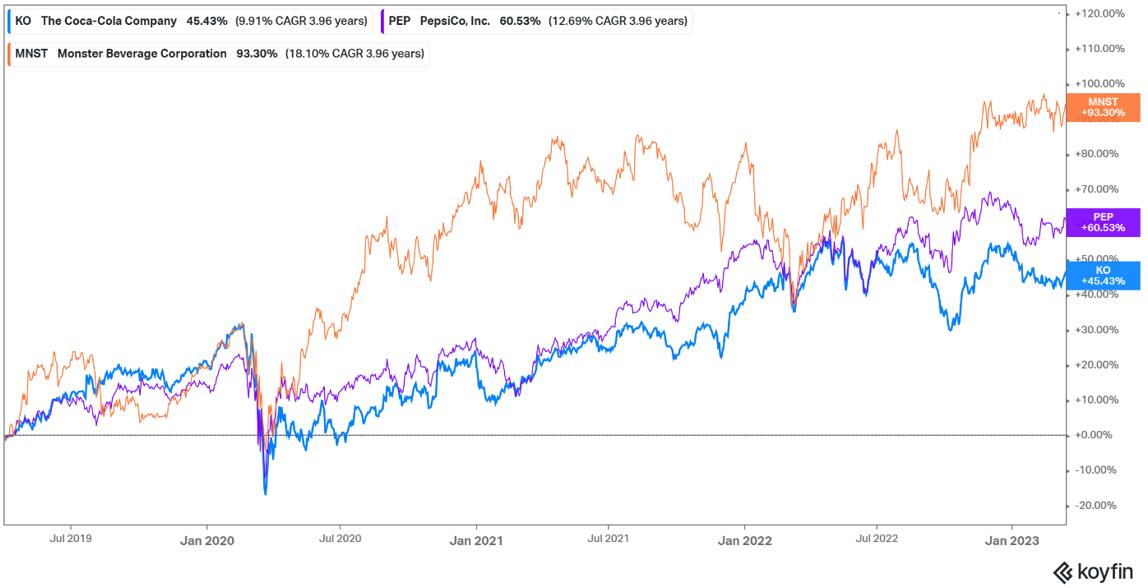
*Coca-Cola’s stock performance from Mr. Quincey’s appointment as Board Chair (April 1, 2019) to March 17, 2023*
Conclusion
These are among many examples that have shown that the Company has made multiple missteps and poor decisions under Mr. Quincey’s leadership; that the Lead Independent Director has failed to be a “robust” or “significant” counter to the CEO; and that the Board overall has failed to mitigate and prevent the damage to the Company from unnecessary political involvement and suboptimal strategies. A separate chair, with an outside perspective and clearly designated powers, has more implied authority to help avoid such risks.
For these reasons, we believe it is imperative that Coca-Cola permanently change its corporate governance policies to require an independent Board Chair at all times.
Therefore National Legal and Policy Center urges shareholders to vote FOR Shareholder Proposal No. 8 (“Requesting an Independent Board Chair Policy”) on the 2023 Proxy Ballot for The Coca-Cola Company.
Photo credits:
Page 3 – Coke bottle cap in mirror, sniggie/Creative Commons
Page 4 – Lead Independent Director Maria Elena “Mel” Lagomasino
Page 7 – James Quincey, World Economic Forum/Creative Commons
Page 9 – Coca-Cola ad in Xinjiang, shok/Creative Commons
Page 11 – Bobby Kotick, bobbykotick/Creative Commons
12
THE FOREGOING INFORMATION MAY BE DISSEMINATED TO SHAREHOLDERS VIA TELEPHONE, U.S. MAIL, E-MAIL, CERTAIN WEBSITES AND CERTAIN SOCIAL MEDIA VENUES, AND SHOULD NOT BE CONSTRUED AS INVESTMENT ADVICE OR AS A SOLICITATION OF AUTHORITY TO VOTE YOUR PROXY.
THE COST OF DISSEMINATING THE FOREGOING INFORMATION TO SHAREHOLDERS IS BEING BORNE ENTIRELY BY THE FILERS.
THE INFORMATION CONTAINED HEREIN HAS BEEN PREPARED FROM SOURCES BELIEVED RELIABLE BUT IS NOT GUARANTEED BY US AS TO ITS TIMELINESS OR ACCURACY, AND IS NOT A COMPLETE SUMMARY OR STATEMENT OF ALL AVAILABLE DATA. THIS PIECE IS FOR INFORMATIONAL PURPOSES AND SHOULD NOT BE CONSTRUED AS A RESEARCH REPORT.
PROXY CARDS WILL NOT BE ACCEPTED BY US. PLEASE DO NOT SEND YOUR PROXY TO US. TO VOTE YOUR PROXY, PLEASE FOLLOW THE INSTRUCTIONS ON YOUR PROXY CARD.
For questions regarding The Coca-Cola Company – Proposal #8 – the Shareholder Proposal requesting independence of the Company’s Board Chair and CEO, submitted by National Legal and Policy Center, please contact Paul Chesser, director of NLPC’s Corporate Integrity Project, via email at pchesser@nlpc.org.
13
